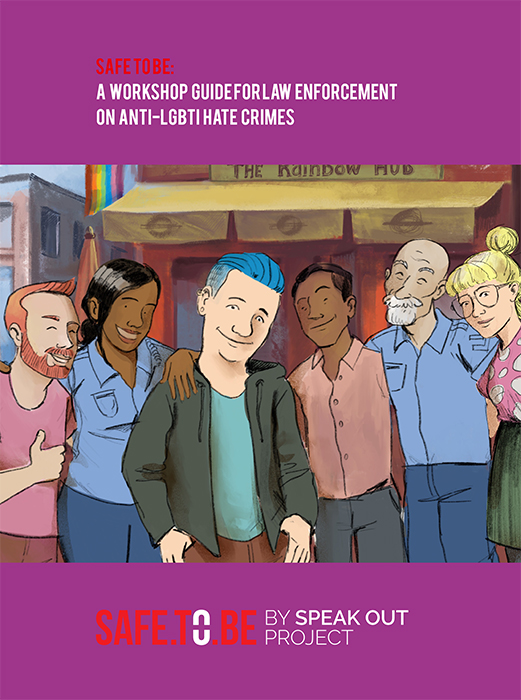Much work has been done by NGOs across the European Union on the topic of hate crimes against the LGBTI community. However, the scale of hate crimes against LGBTI people and their impact on the community remain underestimated. More often, these crimes are either not recognized or remain unreported. Many victims who choose not to report a crime against them do so because they do not believe that law enforcement will take action on their complaint because they are afraid of the reaction of the police or because they relive the crime in front of a stranger who may not react well and this causes additional psychological trauma.
This manual focuses specifically on this aspect. It provides the trainers of law enforcement authorities interactive step-by-step workshop that has the aim to raise awareness on the psychological impact of reporting a hate crime.
The Safe To Be project partners began work in 2018, conducting interviews with police and judicial services across Europe. A total of 45 people were interviewed. The main findings of these interviews can be summarized as follows:
- There is a lack of knowledge about what is a hate crime among police officers working on the field, although these are the people who often need the best understanding of this (unlike high-ranking officials, police officers from diversity departments or special services). units, judges and prosecutors, who are often well educated on the subject). The reason for this has three aspects:
- Low levels of legislation.
- Lack of knowledge about the legislation.
- Insufficient reporting
This guide is distributed in 9 European countries: Belgium, Bulgaria, Estonia, Hungary, Latvia, Lithuania, Portugal, Spain and the United Kingdom. As hate crimes and LGBTI legislation, as well as the social acceptance of the LGBTI community, differ in different national contexts, the section on the national context is different for each country involved in the creation of this guide.
Download the guide HERE
